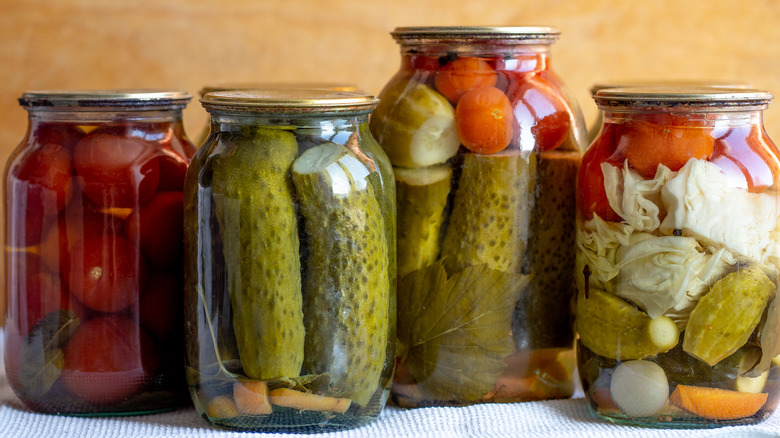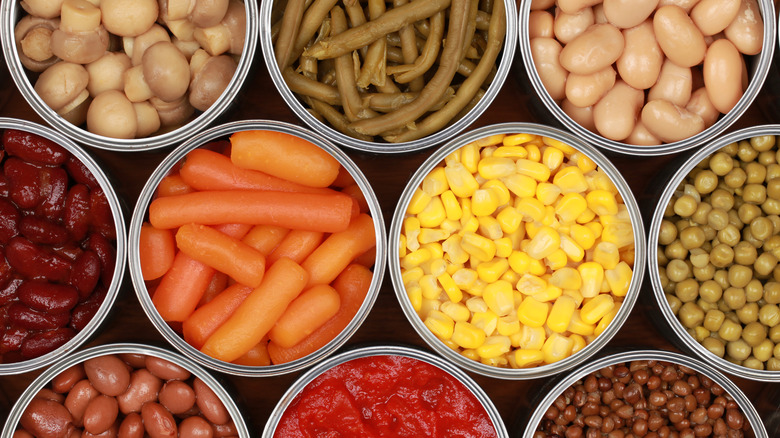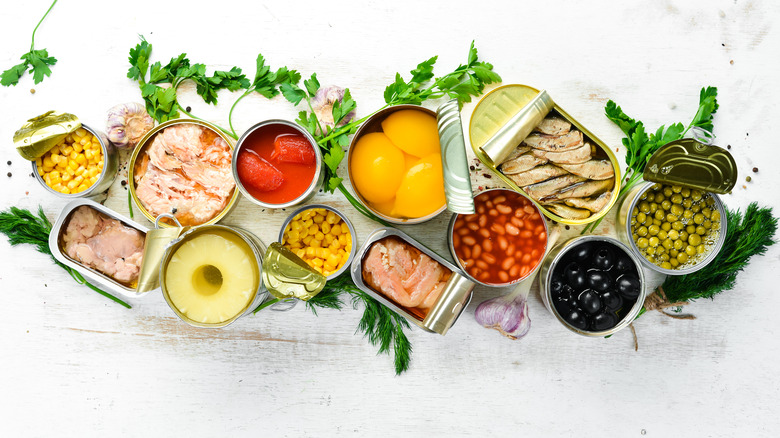How Canned Goods Can Break Down The Can Itself
If you prioritize convenience, canned goods are right up your alley. These foods only require you to warm them up in the microwave or over the stove, meaning that you'll have sides for your meal in just a few minutes. On top of being convenient, canned foods are actually fairly healthy — even though they have a reputation for being the opposite. According to Eat Right, the canning process preserves fat-soluble vitamins, nutrients, proteins, fat, and carbohydrates. This means that canned foods have many of the same nutrients that fresh foods do.
Even though canned foods are convenient and relatively healthy, they do present some drawbacks. For one, even though these goods generally last for several years – making them great for emergencies – they do spoil. Spoiling occurs due to the eventual growth of bacteria that is present in the cans, but it can occur earlier if the cans are exposed to excessive moisture or heat, per ScienceABC. Furthermore, canned goods can even break down the can itself.
Canned goods break down cans through corrosion
According to a 1982 research article published in the Journal of Critical Reviews in Food Science and Nutrition, canned goods break down cans due to a process called internal corrosion. During this process, metal dissolution occurs, which simply involves the food dissolving the metal from which the can is made. Because the food is dissolving the metal and, ultimately, absorbs metallic properties, the breakdown process can alter the taste, texture, and color of the food.
There are certain foods that cause internal corrosion more easily than others. For example, ScienceABC reports that highly acidic foods are especially likely to chemically react with cans, causing them to break down. Because foods high in acidity cause cans to corrode easier than foods low in acidity do, their shelf life is shorter — only about 18 months — whereas low-acidity foods last anywhere from two to five years (via the USDA).
How to store and use canned goods
There are several guidelines you should follow when it comes to storing and using canned goods. One key thing that you should always remember is to keep cans in a cool and dry place, per the University of Minnesota. As mentioned, high temperatures and excessive moisture are two factors that increase the likelihood of canned food spoiling. So — if you store canned foods correctly — you are extending the shelf life of these goods. In addition, it's best if you don't wait until the date on the can to eat the food just to be safe; use foods high in acidity within two years of the date of the can and foods low in acidity within three years of the date on the can.
According to HGTV, sorting your jars so that the older ones are in the front can also benefit you. This sorting process will ensure that you use the older cans first, helping further to prevent spoilage.


